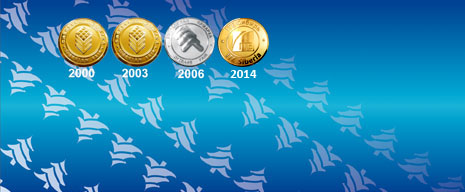 |
 |
From the history
Features of the Educational Concepts of the Roman Educator and Rhetorician Marcus Fabius Quintilian
The article examines the educational concepts of the outstanding ancient Roman rhetorician and teacher Mark Fabius Quintilian, which were formed by the first century AD. Their knowledge is necessary, firstly, to understand how the formation of philosophical and pedagogical thought took place in Ancient Rome; secondly, to find out which educational concepts the teacher Mark Fabius Quintilian borrowed from his predecessors, that include the Ancient Greek philosophy of education, and which he introduced into ancient Roman pedagogy himself.
Trends of the Development of Tyumen Teachers in the post-war years
The article presents the difficulties faced by Tyumen teachers AT the end of the Great Patriotic War in the USSR. The purpose of the study is to study the state of Tyumen education, as well as to identify problems in the activities of teachers in the post-war period. The author has relied on the following research methods: historical-structural (identifying pedagogical connections within the school system) and historical-comparative (comparing and contrasting various historical periods in the development of school education).
Irkutsk Private Women’s School of N. V. Sukachev: Education in Siberia in the Late 19th–Early 20th Centuries
The article contains information about the history of functioning of the «free school for girls», which was opened in the late 19th century by the philanthropist, teacher, wife of Irkutsk public figure Nadezhda Vladimirovna Sukacheva in Irkutsk on her own funds and was maintained by her for 34 years. The data concerning the organisation of the educational process are covered, and biographical information about some representatives of the teaching staff is presented. The topic is addressed due to the low degree of study.
How the Realism of Aristotle’s Philosophy Correlates With His Educational Concepts: Philosophical and Pedagogical
The article analyzes the features of the philosophy of education of the outstanding ancient Greek philosopher and teacher Aristotle developed by the 4th century BC. Its knowledge is important — firstly, to understand how the formation of philosophical and pedagogical thought took place in Ancient Greece; secondly, to find out which educational concepts the philosopher Aristotle borrowed from his teacher Plato, and which ones he introduced into pedagogy himself.
Trends of the Development of Tyumen Teachers in the Post-war Years
The article presents the difficulties faced by Tyumen teachers AT the end of the Great Patriotic War in the USSR. The purpose of the study is to study the state of Tyumen education, as well as to identify problems in the activities of teachers in the post-war period. The author has relied on the following research methods: historical-structural (identifying pedagogical connections within the school system) and historical-comparative (comparing and contrasting various historical periods in the development of school education).
Features of the Philosophy of Education of the August Hermann Franke
The article analyzes the philosophical and pedagogical concepts of the American and German philosopher and teacher of the XVII-XVIII centuries. August Hermann Franke. His contribution to Western and Russian education lies in the fact that he took the religious ideas of pietism and the philosophy of sensationalism as a basis and introduced them into the pedagogical system of education he developed for children and youth.
How the Philosophy of Education by Jean Jacques Russo’s Correlates With the Ideas of Naturalism
The article analyzes the philosophical and pedagogical concepts of the French philosopher, teacher and writer of the 18th century Jean Jacques Rousseau. His contribution to Western education lies in the fact that for the first time in the history of pedagogical thought, he placed the theory of age-related education of children at the center of the philosophical and educational system. In this theory he developed the ideas of naturalism and thus eliminated everything that interfered with the natural development of the child.
Realization of the Makarenko Pedagogy and Technology: Principles of Organization & Education Rules within a Mature Team
The article introduces new principles of the organization of education as a category of pedagogical reality and science within the A. S. Makarenkopedagogy by. The substantiation of the unclosed list of principles of education, the generation of principles by cross-cutting tasks of society is given. The connection of the principles of education with the needs and values of society is revealed, the principles of education of Makarenko are formulated and their content is disclosed. The term «rules of education» introduced into circulation and their formulation are given.
How Scholastic Conceptuality of Thomas Aquina Correlates with Medieval Philosophy of Education (Philosophical and Pedagogical Analysis)
The article analyzes the features of the philosophy of education of the outstanding representative of medieval scholasticism, philosopher and teacher, Thomas Aquinas, the knowledge of which is necessary, firstly, to understand how the formation of the philosophical and pedagogical thought of Thomas Aquinas took place; secondly, to find out which educational concepts he borrowed from his predecessors, and which he introduced into pedagogical practice himself.
Formation of Primary Professional Education at Orenburg Region: 1920s and 1930s
The article highlights important transformations in the system of primary professional education of the Orenburg region in the 20s and 30s of the XX century. On the basis of archival materials and periodicals, the author reveals all the difficulties faced by the primary professional education of the Orenburg region during the specified period and ways to overcome them. The author also considers the main ways of training workers in industry and agriculture in the Orenburg region.
Сайт поддерживается в Новосибирском институте повышения квалификации и переподготовки работников образования и является участником Новосибирской открытой образовательной сети